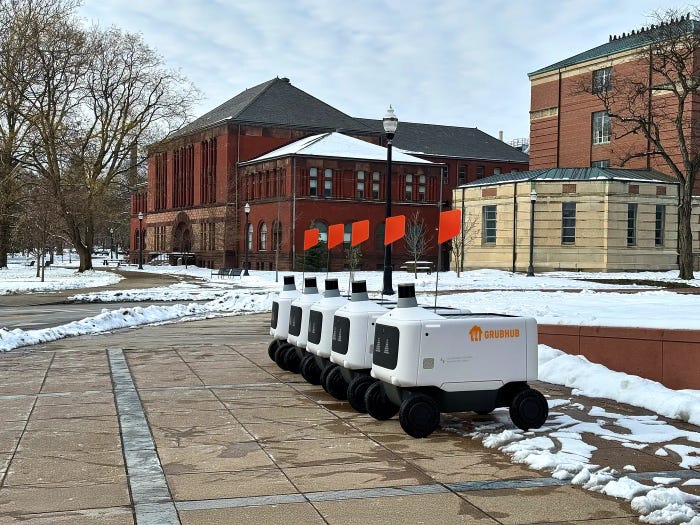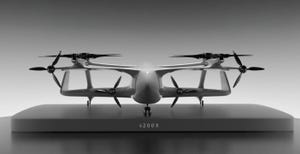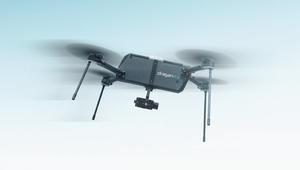Driverless Bus World Challenge BeginsDriverless Bus World Challenge Begins
Turbulence in the autonomous vehicle industry hasn’t impacted the challenge which saw a rise in participants this year
.jpg?width=1280&auto=webp&quality=95&format=jpg&disable=upscale)
Testing for finalists in the World Challenge for Self-Driving Transport is underway in Dubai.
The assessments are being carried out in the Dubai Silicon Oasis Zone in the Emirate, with participants battling it out in two categories: Industry Leaders and Local Academia.
A total prize fund of $2.3 million is up for grabs.
The challenge has evolved into an annual event, and this year the focus is on driverless buses, having concentrated on last-mile transportation and unmanned logistics in previous iterations.
The competition has the backing of Dubai’s Crown Prince Sheikh Hamdan bin Mohammed bin Rashid Al Maktoum, who is pursuing aggressive plans to overhaul transportation in the Emirate by the end of the decade.
As Ahmed Bahrozyan, chairman of the organizing committee for the Dubai World Challenge for Self-Driving Transport, Dubai’s Road and Transport Authority (RTA) pointed out: “The [Challenge] complements RTA’s efforts to raise the profile of Dubai in self-driving transport and supports the government’s vision to transform 25% of total mobility journeys in Dubai into journeys that use self-driving means by 2030.”
Criteria for the two categories are slightly different. Industry Leaders are considered to be any global company or consortium working on self-driving tech for buses, and were asked to submit a “mini-/midi-/standard bus of at least 5.6 meters with a minimum capacity of 12 seats.” In the testing process, they are being evaluated in four areas – “Safety & Security,” “Passenger Transport Performance,” “Operational Design Domain” and “Operational Capabilities.”
Local Academia is designated as a university or research institute based in the United Arab Emirates with a research and development department investigating self-driving solutions. They were charged with developing a full or small-scale working prototype with a focus on enhancing the passenger experience.
Despite the obvious turbulence in the autonomous vehicle industry – which has seen several companies make cutbacks or even close in the past year – response to the challenge has been remarkably positive.
Organizers say there was a significant increase in the number of participants, with 27 submissions received from worldwide candidates – a 130% increase in the targeted number. The Local Academia category, meanwhile, saw a 175% rise.
In the Industry Leaders sector, a total of six submissions have been shortlisted – and one of the first to be assessed has been the Enviro200AV autonomous single-decker bus developed by Alexander Dennis and Fusion Processing that was launched into service earlier this year on the outskirts of Scotland’s capital, Edinburgh.
As a video released by the RTA on Twitter illustrated, in Dubai the bus was put through its paces on a test track that replicated traffic conditions in the city and encountered more than 20 different scenarios ranging from autonomously bypassing obstacles safely to tackling severe weather conditions like sandstorms.
“This has been a great opportunity to build on the great work we’ve done with our partners in the CAVForth project and test our autonomous bus under further traffic conditions,” said Jamie Wilson, head of concepts and advanced engineering at Alexander Dennis. “We’re extremely grateful to the RTA for giving us the chance to show the capabilities of our Enviro200AV and we hope to continue the conversation on how we can support the RTA’s strategy.”
The winners of the challenge are set to be announced during the third Dubai World Congress for Self-Driving Transport, to be held on Sept. 26-27.
The event provides a global platform for stakeholders in AV tech to meet and discuss their innovations. There will also be an exhibition showcasing self-driving transport, with around 60 exhibitors and 2,000 visitors.
About the Author
You May Also Like


.jpg?width=700&auto=webp&quality=80&disable=upscale)
.jpg?width=700&auto=webp&quality=80&disable=upscale)

.jpg?width=300&auto=webp&quality=80&disable=upscale)


